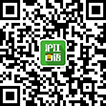教育部考试中心模拟试题汇编:2010年考研英语翻译(2)
作者: 来源: 时间:2009-10-23 17:23
The meanings of “science”and “technology”have changed significantly from one generation to another. More similarities than differences, however, can be found between the terms, (46)Both science and technology imply a thinking process, both are concerned with causal relationships in the material world, and both employ an experimental methodology that results in empirical demonstrations that can be verified by repetition. (47)Science, at least in theory, is less concerned with the practicality of its results and more concerned with the development of general laws, but in practice science and technology are inextricably involved with each other. The varying interplay of the two can be observed in the historical development of such practitioners as chemists, engineers, physicists, astronomers, carpenters, potters, and many other specialists. Differing educational requirements, social status, vocabulary, methodology, and types of rewards, as well as institutional objectives and professional goals, contribute to such distinctions as can be made between the activities of scientists and technologists; but throughout history the practitioners of “pure”science have made many practical as well as theoretical contributions.
(48) Indeed, the concept that science provides the ideas for technological innovations and that pure research is therefore essential for any significant advancement in industrial civilization is essentially a myth. Most of the greatest changes in industrial civilization cannot be traced to the laboratory. Fundamental tools and processes in the fields of mechanics, chemistry, astronomy, metallurgy, and hydraulics were developed before the laws governing their functions were discovered. The steam engine, for example, was commonplace before the science of thermodynamics elucidated the physical principle underlying its operations.
In recent years a sharp value distinction has their bitter opponents, but today many people have come to fear technology much more than science. (49) For these people , science may be perceived as a serene, objective source for understanding the eternal laws of nature, whereas the practical manifestations of technology in the modern world now seem to them to be out of control.
(50) Many historians of science argue not only that technology is an essential condition of advanced, industrial civilization but also that the rate of technological change has developed its own momentum in recent centuries. Innovations now seem to appear at a rate that increase geometrically, without respect to geographical limits or political systems. These innovations tend to transform traditional cultural systems, frequently with unexpected social consequences. Thus technology can be conceived as both a creative and a destructive process.
(48) Indeed, the concept that science provides the ideas for technological innovations and that pure research is therefore essential for any significant advancement in industrial civilization is essentially a myth. Most of the greatest changes in industrial civilization cannot be traced to the laboratory. Fundamental tools and processes in the fields of mechanics, chemistry, astronomy, metallurgy, and hydraulics were developed before the laws governing their functions were discovered. The steam engine, for example, was commonplace before the science of thermodynamics elucidated the physical principle underlying its operations.
In recent years a sharp value distinction has their bitter opponents, but today many people have come to fear technology much more than science. (49) For these people , science may be perceived as a serene, objective source for understanding the eternal laws of nature, whereas the practical manifestations of technology in the modern world now seem to them to be out of control.
(50) Many historians of science argue not only that technology is an essential condition of advanced, industrial civilization but also that the rate of technological change has developed its own momentum in recent centuries. Innovations now seem to appear at a rate that increase geometrically, without respect to geographical limits or political systems. These innovations tend to transform traditional cultural systems, frequently with unexpected social consequences. Thus technology can be conceived as both a creative and a destructive process.
继续学习更多:第二页:答案与试题精解 | 第三页:全文翻译
推荐阅读:
“教育部考试中心模拟试题汇编:2010年考研英语翻译(2)”更多相关文章
沪江考研阅读提示:双击或划选单词,查看详细解释,并可收录进生词本以供记忆学习
猜你喜欢
- 出国留学中介前十名介绍 沪江是最好的选择
想要出国留学却没有时间没有精力去办理出国留学的手续,这个时候寻找一个好的出国留学中介就成了最好的办法,好的中介可以让自己更合理的去挑选自己喜欢的国家和学校,而且中介还有出国培训相关的内容,这...
- 日本动漫游戏:学校的圣域
feng社第9作第1弹《彼女のセイイキ(她的圣域)》,而系列的第2弹《妹的圣域》已于2015年08月28日发售,系列第3弹《学校的圣域》在2016年11月发售。
- 山口百惠《いい日旅立ち》MV
《良日启程》是山口百惠的第24张单曲,也是其销量最高的单曲(总计销量达100万张)。同名主打歌由谷村新司作词作曲,日本国有铁路曾通过这首歌获得灵感,直接将这首歌的歌名作为旅行活动宣传语。
- 秒变单身狗:哪些话不能对恋人说
恋爱初期总是美好而甜蜜的,然而两人长期处下来,就会发现对方的不足之处。生气起来口不择言,结果深深的伤害到两人的感情。这期给大家介绍一些对恋人可不能说的一些话。
- 「こんにちわ」是个啥?你知道吗?
常逛日站或是和日本朋友聊天的小伙伴们肯定经常会听到一句:こんにちわ,从发音上我们可以猜出来是こんにちは,但是这个こんにちわ是怎么来的呢?他又是什么呢?下面就让沪江日语教研君来告诉你吧!
- 日本礼仪:你真的会斟酒吗?
走进社会,我们不仅要在工作上努力努力再努力,还要一边学习一些社交礼仪。酒会作为一种常见的社交活动,学会其中的斟酒礼仪也是一门学问。今日,小编给大家整理了日本的斟酒礼仪供大家参考学习。
- 动漫日语脱口而出:痛痛飞走了
看动漫不学日语?那就太可惜啦!花花团小组节目《动漫日语每日一句》,每天教大家一句动漫中的实用台词,让你在看动漫的同时学到地道日语口语。爱动漫,爱生活!一起来练习口语吧!


